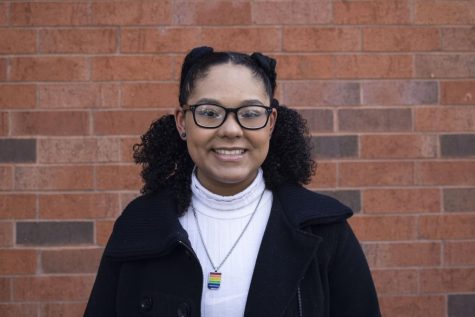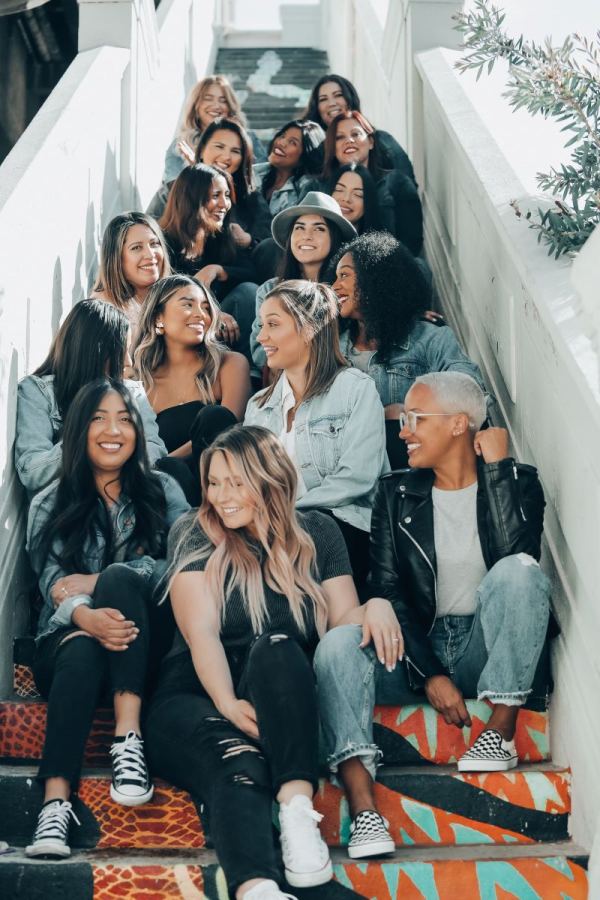The importance of an Intersectional Women’s History Month
Why intersectional female representation is important and movies to watch for a more intersectional Women’s History Month
Photo by UNSPLASH
“‘Ain’t I a woman?” The same question asked by Sojourner Truth in 1851.”
All too often when we see women represented on our TV screens as “leading ladies,” or in our books and magazines, the women we are shown are almost always skinny white women.
Breaking this down even further, the “leading lady” that we’re always shown on TV, is usually an able-bodied, straight, skinny, white, Christian woman from a middle-class background.
When we talk about powerful women and female accomplishments it is all too common that women of color, women with disabilities, plus-size women, LGBTQ+ women and so many others are left out of these conversations.
This fact becomes even more obvious in March as everyone begins making their posts on social media for Women’s History Month, having conversations about powerful women and female accomplishments or simply even just watching their favorite female lead movies and TV shows.
As Women’s History Month continues, something that’s really started to bother me is the lack of representation of women who aren’t straight, able-bodied, skinny, white women.
Women of color, plus size women, LGBTQ+ women and women with disabilities have accomplished so much in this society and have fought so hard to be given the same rights and respect as those skinny white women that our society holds on pedestals.
So why are these women being left out of these conversations? Why aren’t these women being represented in our media?
Or, better yet, why is it that when we do talk about these women we just circulate the same couple of names. You know? Names like Rosa Parks, Zendaya and AOC. All amazing and powerful women, yes, but they are just the tip of the iceberg.
Why is it that when we turn on our TVs we don’t see women like Angela Davis, Naomi Osaka, Winona LaDuke, Dolores Huerta, Sheela Murphy, Judy Heumann, Roxan Gay, Grace Lee Boggs, Megan Thee Stallion, Winnie Wong, Linda Sarsour, Audre Lorde, Sylvia Rivera, Jillian Mercado or Cecilia Chung?
Why are these women not talked about when we have these conversations during Women’s History Month about powerful and accomplished women?
They are all women, are they not? They deserve representation.
I deserve representation.
“Ain’t I a woman?” The same question asked by Sojourner Truth in 1851.
So often when we have these conversations, when we talk about the problems women face or when we as a society push for female rights — women of color, women with disabilities and queer women are left out of these conversations.
But aren’t we all women?
When we are fighting for female rights, these are the kind of women we should keep in mind. When we talk about the women we look up to, these are the types of women who should come to mind, not just for women who identify with them, but for everyone.
So how do we fix this? How do we avoid this white feminist ideology and how do we diversify this narrative?
We educate ourselves and make sure that when we are having these conversations about powerful women, we are not just thinking about women like ourselves.
We step back and allow women of color, women with disabilities and queer women to lead these conversations.
We demand to see women of color, queer women, women with disabilities, plus-size women, etc. on our TV screens.
We push ourselves to grow and be inclusive individuals so that we can grow and be an inclusive society.
Now, I recognize that this is not something that can be fixed overnight, so, in the meantime, we can start by diversifying our own TV screens, so that when we have these conversations about powerful women, at least we all have someplace to start.
So, below you can find a short list of some of my personal favorite movies starring some powerful, and intersectional, women as well as a few movies which are on my to-watch list as well:
“Black Panther 2: Wakanda Forever” (2022)
“Real Women Have Curves” (2002)
“The Half of it” (2020)
“Maya Angelou: And Still I Rise” (2016)
“Harriet” (2019)
“Rizo” (2021)
“Rafiki” (2018)
“Dumplin” (2018)
“Hidden Figures” (2016)
“Margarita With a Straw” (2014)
“Toni Morrison: Black Matters” (2020)
“Thappad” (2020)
“Frida” (2002)
“Little Big Women” (2020)
“Mildly Different” (2021)
Jackson can be reached at Jacksonk5351@uwec.edu.

Kiara Jackson is a fourth-year integrated strategic communication and criminal justice student and this is their second semester on The Spectator. When they are not writing for The Spectator, Kiara is likely listening to music, hanging with friends, watching Marvel or anxiously pacing around their dorm room just trying to survive their final school year.


